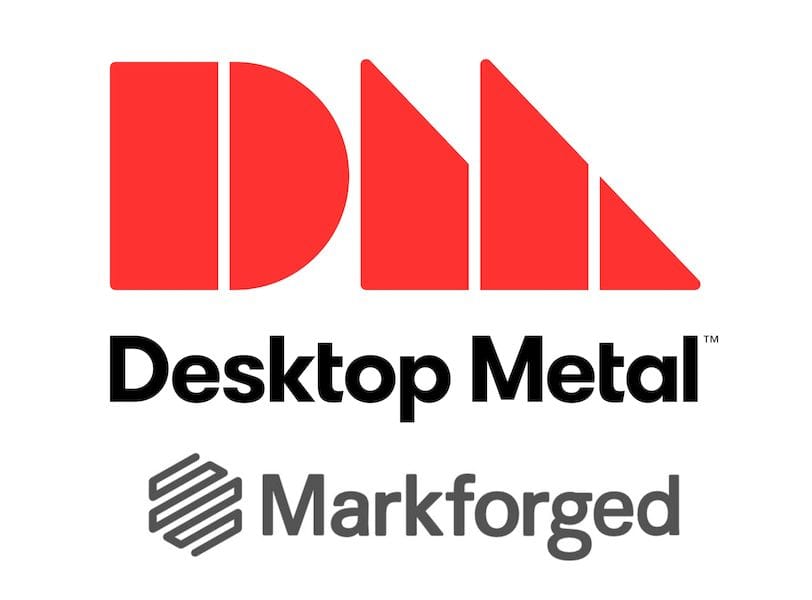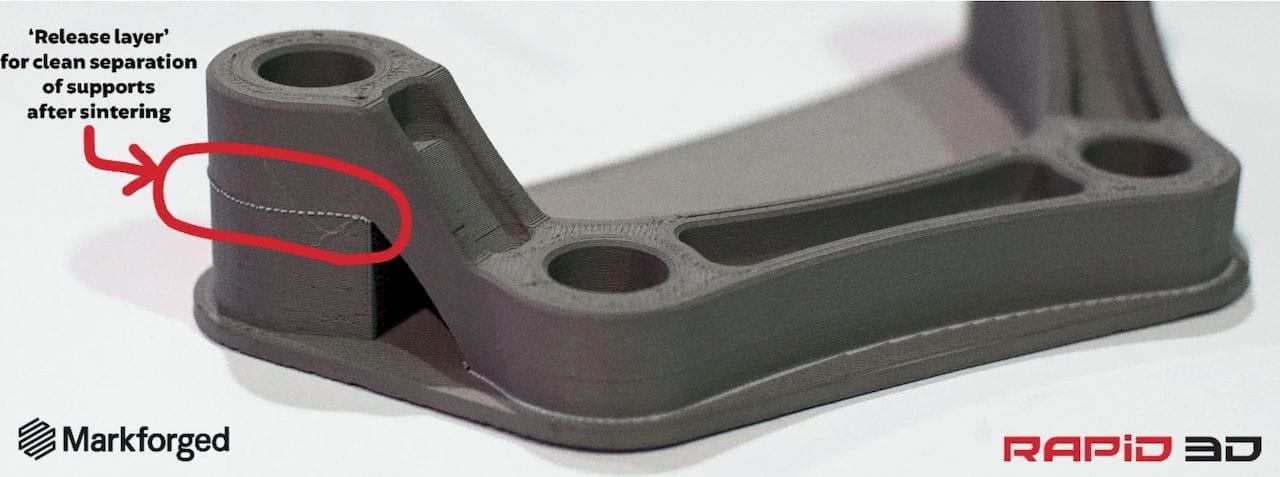
Big news today: Desktop Metal has launched a lawsuit against their prime competitor, Markforged.
As you may recall, Desktop Metal has been developing a highly innovative and inexpensive 3D metal printing process for the past two years. Their process has been so successful they’ve been able to raise USD$277M from interested investors so far.
Markforged is a slightly older company that began by producing a highly innovative 3D printer that is able to 3D print very strong parts in nylon and continuous carbon fiber, which has been very well received by industry.
Curiously, Markforged added a new product to their portfolio in the past year: 3D metal printing, which used a somewhat similar process to Desktop Metal. However, they’re not the only ones doing this, as it seems the basics of that process are well known.
The two companies are seen as the two leads in a new market focusing on less-expensive 3D metal printing for segments of the manufacturing industry that would not otherwise be able to afford the often very expensive traditional 3D metal printing equipment.
But suddenly yesterday Desktop Metal sued Markforged in US court for apparently copying portions of Desktop Metal’s patented processes.
I’ve read through the lengthy and legal complaint document and found the following, which is claimed by Desktop Metal:
- Desktop Metal’s CEO, Ric Fulop, previously was tied to Markforged (as well as a number of other companies) and was aware of their strategies.
- Fulop decided to break away from the then-plastics-only Markforged to develop a 3D metal printing venture, which eventually turned into Desktop Metal
- At the time of Desktop Metal’s first financing, Markforged sent a notice to Fulop “reminding him of obligations asserted to be owed to Markforged”
- Desktop Metal filed several patents related to a unique method of isolating support structures from metal print material using ceramics that would decompose during debindering
- Markforged in January 2017 suddenly announced a desktop 3D metal printer that uses a process similar to Desktop Metal’s
- Markforged publicly displayed their support method, which, according to Desktop Metal, appears to be extremely similar to Desktop Metal’s ceramic method (the Complaint document includes much evidence, including images illustrating the similarity)

If the above wasn’t enough, there’s more:
- Desktop Metal employed a Matiu Parangi as a print operator during product prototype development
- Mr. Parangi was discovered to have downloaded a series of documents from Desktop Metal that were entirely unrelated to his role as a print operator
- Desktop Metal confirmed that Mr. Parangi’s brother worked as the Director, Technology & Creative at Markforged
Desktop Metal strongly suspects that Parangi passed on information about the patented process to his brother at Markforged, who presumably then duplicated or re-engineered the process for their own equipment, if Desktop Metal’s suspicions are correct.
All of this has led to Desktop Metal launching the lawsuit yesterday. They’re seeking a number of things:
- Damages proportional to their use of the infringing patents
- “An award of three times Desktop Metal’s actual damages for Markforged’s unfair trade practices”
- Punitive damages
- Details of use of the infringing materials
- “Civil seizure of property incorporating Desktop Metal’s trade secrets”
- Injunctive relief
- Prohibition of Markforged from using the Desktop Metal patented processes
- Court and legal costs
Having read the Desktop Metal complaint, it seems clear there could have been an infringement. However, cases always have two sides and we must await Markforged’s response.
This lawsuit appears to have been prepared for launch immediately after the announcement of Desktop Metal’s last fundraising round, presumably to avoid complications. Now, it’s complicated.
How will this affect the companies going forward? I don’t think it will affect Desktop Metal much either way, and they are more well funded than Markforged. For Markforged, things might be worse if the decision is not in their favor. If that happens, they may be forced to cease sales of their 3D metal printers, or perhaps pay significant licensing fees to Desktop Metal.
But we don’t know what will happen. I do know this will most certainly play out over a longer period, so this will be a case to watch.

